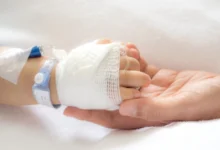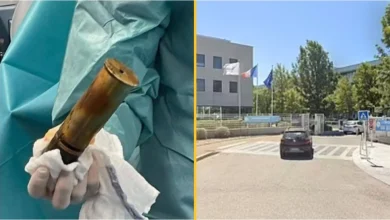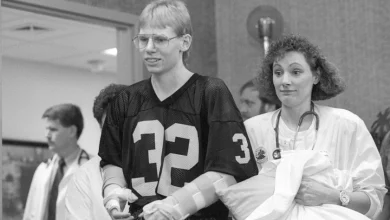Do We Need Opioids Only to Relieve Pain? A Man Who Could Not Feel Pain Still Needed Opioids After Surgery
A Case of Congenital Indifference to Pain Challenges Assumptions About Opioid Use in Post-Operative Care

When a man in his thirties arrived at a UK tertiary hospital for lung surgery, the medical team already knew his case would be different, especially post-operative care. He was diagnosed with congenital indifference to pain, a rare condition affecting just a few hundred individuals across the globe. As a child, he had scalded himself without noticing. Later, he ruptured a tendon in his arm and felt nothing. A genetic test confirmed a mutation in a sodium channel gene, SCN9A, responsible for the inability to feel pain.
The patient was scheduled for a biopsy and video-assisted thoracoscopic surgery (VATS) to remove suspicious lung nodules, likely linked to a sarcoma treated four years earlier. His condition suggested he would not need pain relief. But previous surgeries had revealed a complication: although he could not feel pain in the usual sense, his body still reacted strongly after surgery.
When No Pain Still Means Discomfort

During the operation, his vital signs remained completely stable. No changes in heart rate, blood pressure, or breathing were observed, even during incisions. This confirmed that his nervous system did not register pain in the expected way. Yet in the hours after surgery, the picture changed. He developed mild fever, high blood pressure, and rapid heartbeat — signs typically associated with pain or infection.
To manage these symptoms, the team used standard pain medications, including patient-controlled doses of oxycodone and later oral paracetamol and opioids. The symptoms eased, even though the patient insisted he felt no pain. Interestingly, he began to feel nauseous from the medication and eventually stopped the stronger drugs. Despite this, milder analgesics kept his symptoms in check.
Rethinking Pain Management in Special Cases
This case suggests that pain perception is not the only signal that matters after surgery. The body’s internal stress response — involving hormones, heart rate, and immune activity — can still be triggered even if the brain does not interpret pain normally. In this patient, those physiological responses were real and measurable, despite his insensitivity.
Painkillers, especially opioids, appear to have helped by calming that internal alarm system. It raises the question: should post-operative care rely only on what the patient reports, or should it also consider unseen responses? In this case, not treating these reactions might have led to complications or delayed recovery.
What the Medical Literature Says
A review of related case reports supports this mixed picture. In some patients with similar conditions, surgery was performed with little or no anaesthetic, and they recovered without issue. But others, like this patient, showed significant changes in blood pressure or heart rhythm in response to procedures. One large review found that even though pain was absent, the body sometimes still reacted with stress signals such as fever and heart rate changes.
It is also notable that different types of congenital pain insensitivity can have different effects on the autonomic nervous system. Some patients have difficulty regulating temperature or heart rate, while others do not. This variation makes it difficult to apply a one-size-fits-all approach to care.
What This Could Mean for Future Protocols
The case challenges the current trend of reducing opioid use in post-surgical care by showing that even patients who cannot feel pain may need them. It also suggests that clinicians should monitor not only pain scores but also vital signs and stress indicators, especially in rare neurological conditions.
Customizing care based on individual physiology — rather than relying solely on reported pain — could lead to better outcomes for patients with unusual conditions. As medical knowledge advances, understanding the full picture of how the body responds to surgery may help shape safer and more effective treatment plans.
[Source]








